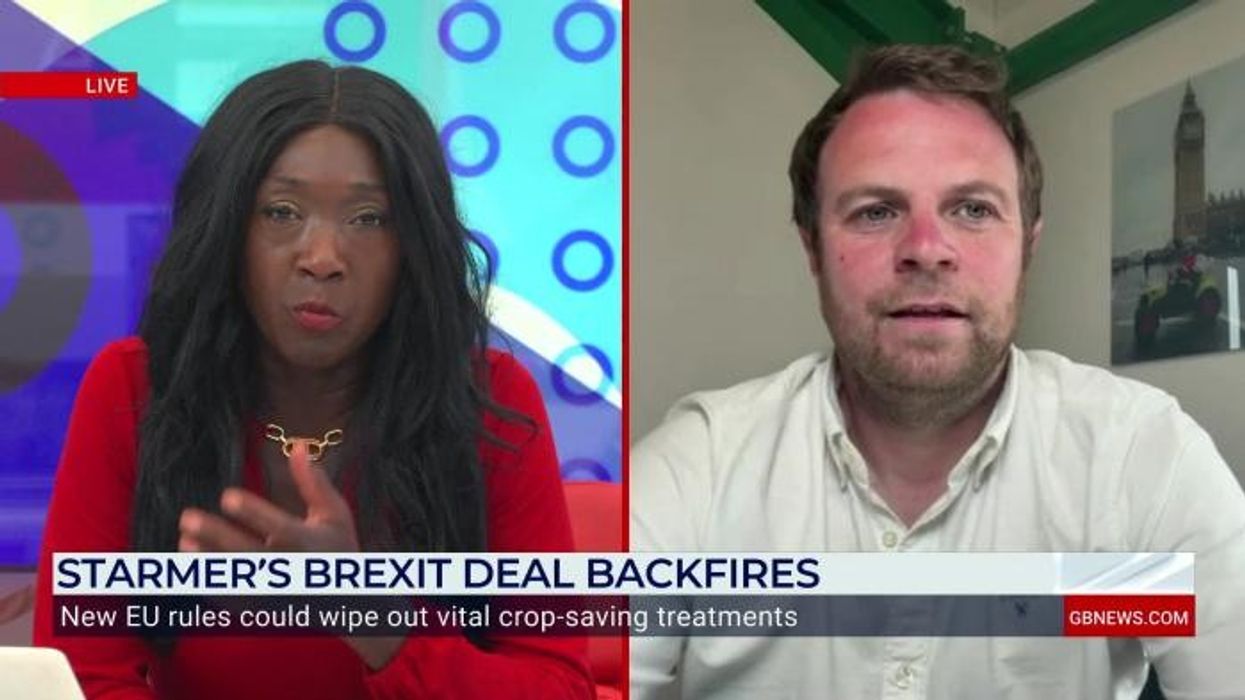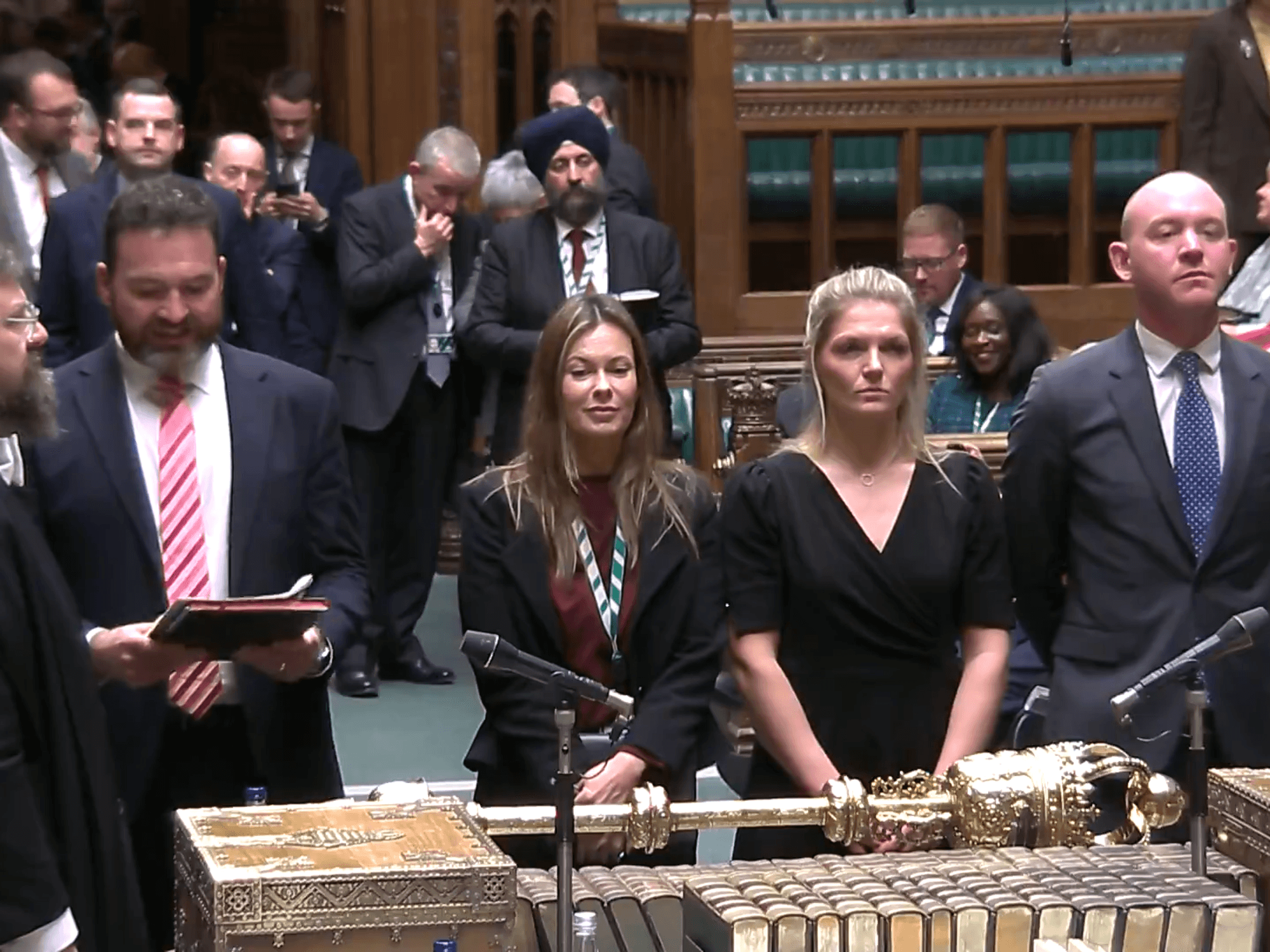Farmers warn entire harvests could be lost following Keir Starmer's Brexit reset - 'Devastating!'

Downing Street did not deny that Britain faces having to ban more pesticides
Don't Miss
Most Read
Trending on GB News
British farmers have warned they face losing harvests as nearly 30 widely used pesticides and fungicides will be banned under Sir Keir Starmer's Brexit reset deal with the European Union.
Growers fear the commitment to follow EU laws on agricultural chemicals could lead to significant falls in food production and further erode their already tight profit margins.
A raft of products will have to be taken off shelves, including treatments to prevent potato blight, which threatened crops during last year's wet winter.
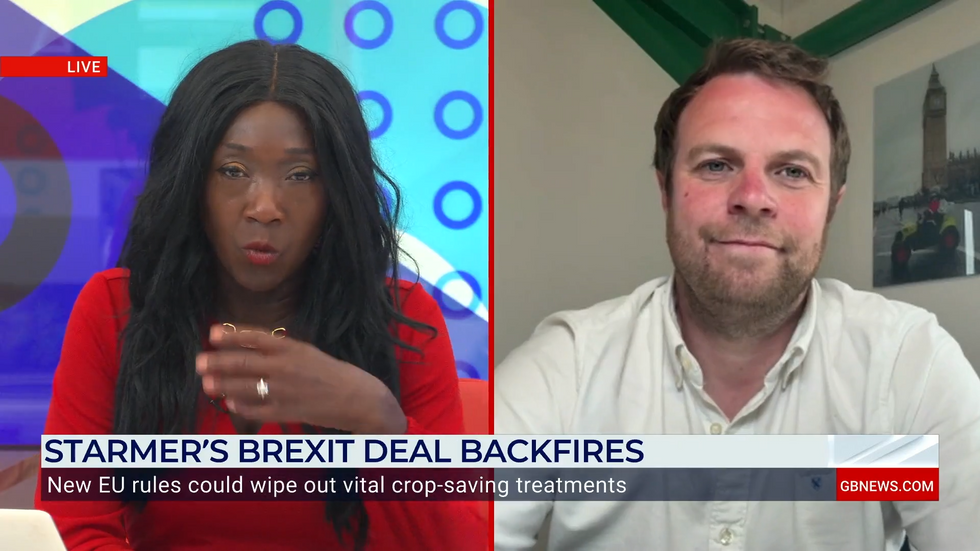
Olly Harrison, a cereal farmer in the North West spoke to Nana Akua on GB News
|GB News
The UK currently allows the use of 28 existing and new products that the EU has not permitted.
Olly Harrison, a cereal farmer in the North West, said he would have lost his entire potato crop last year had the treatment for potato blight been banned.
"It would be devastating if we had to ban all these products," he said.
"The UK has taken a more science-led approach since Brexit on pesticides, whereas EU regulation is often based on emotion and green lobbying.
"We need to paddle our own canoe when it comes to food security."
LATEST DEVELOPMENTS: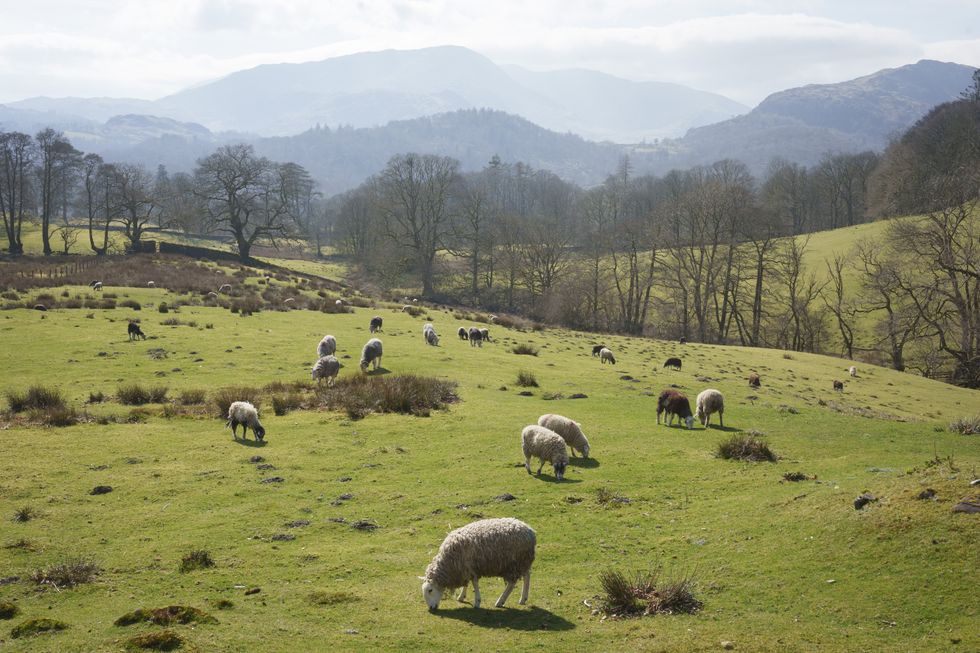
The UK currently allows the use of 28 existing and new products that the EU has not permitted
|GETTY
James Wright, a farmer from Exmoor who stood as a Tory candidate at the last election, said many of the pesticides available in Britain are "cheaper than in the EU".
"There's a lot of worry, particularly in arable farming at the moment, because the margins are really tight," he said.
"The arable guys are really struggling at the moment, prices are way down, and this is just another kick."
Britain now faces having to ban these chemicals because previous Tory Governments took a lighter touch approach to regulation than the EU after Brexit.
The deal Sir Keir agreed with Brussels explicitly states that pesticide regulations will be covered by the agreement.
A paper setting out the "common understanding" says the pact "should ensure the application of the same rules at all times by providing for timely dynamic alignment" with EU rules.
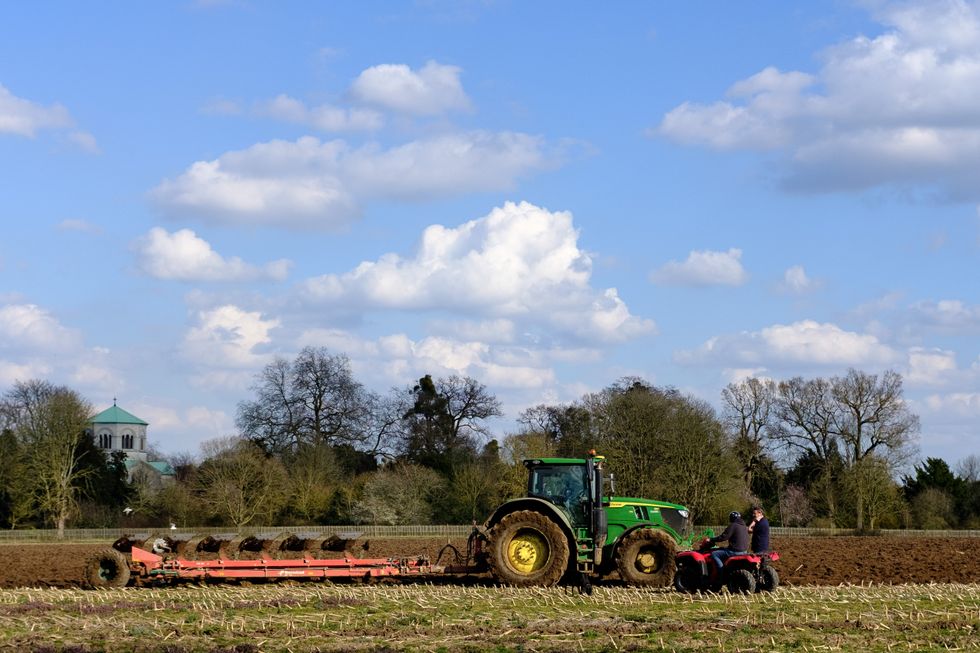
Critics of the reset have said the UK now has a faster approach to pesticide regulation
|GETTY
The dossier adds that "where necessary to ensure the European Union's level of food, sanitary, and phytosanitary safety" this should be done "through the immediate application of the relevant European Union rules" in the UK.
Among specific concerns is the use of glyphosate, a weedkiller that farmers in the north and west often use to dry out their crops pre-harvest due to the UK's wet weather - a practice now banned in the EU.
Hazel Doonan, the head of crop protection and agronomy at the Agricultural Industries Confederation, said one benefit of Brexit had been the UK's nimbler approach to pesticide regulation.
She noted that four new active substances - two herbicides and two fungicides - had come onto the market in Britain that are still awaiting approval in the EU.
"We have and will highlight to Defra that if we are to lose some active substances that are currently available then that could mean that growers face, in some areas and for some crops, very few alternatives to tackling weeds, pests and diseases," she said.
Environmental groups welcomed the move as a "massive win for human health, nature and British farmers" and described the pesticides as "harmful".
The Pesticide Action Network has compiled a list of 28 products that are banned in the EU but not in the UK, with 15 actively marketed in Britain.
Josie Cohen from the charity said: "The agreement to align with EU pesticide standards is a massive win for human health, nature and British farmers.
"The reset deal draws a line under the past five years during which the UK Government has been quietly weakening our national pesticide standards."
Downing Street did not deny that Britain faces having to ban more pesticides, but said the new EU agreement will give ministers input into EU policymaking.
A Government spokesman said: "Our new agreement with the EU will support British farming by opening up access to EU markets and making agrifood trade with our biggest trading partner cheaper and easier.
"It will cut red tape and costs, benefitting British producers, retailers and consumers."
More From GB News


